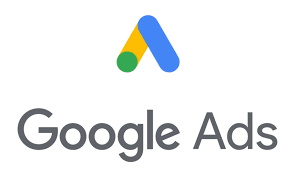Google Ads Tools
October 14, 2024 2024-10-14 10:37Google Ads Tools
Google Ads Tools 2024 Google Ads offers a range of tools to help businesses optimize their advertising campaigns and improve their performance. One key tool is the Keyword Planner, which allows advertisers to research and discover relevant keywords to drive ad traffic.
Google Ads Tools
It helps identify search volume, competition, and cost-per-click (CPC) estimates, making it easier to choose the right keywords. Another essential tool is the Ad Preview and Diagnosis Tool, which allows advertisers to check how their ads appear in search results without affecting ad performance or costing impressions.
Google also offers Google Analytics integration, enabling businesses to track the effectiveness of their campaigns, such as how users interact with their website after clicking an ad.
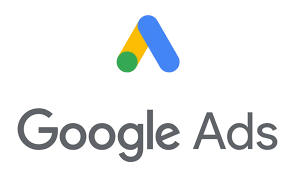
Additionally, Performance Planner helps forecast future campaign results and budget recommendations. The Google Ads Editor is a downloadable application that allows for offline campaign management.
Together, these tools enable advertisers to manage and refine their Google Ads strategies, ensuring that they reach their target audience and achieve their marketing goals.
Keyword research tools
Here’s a list of tools you can use to find the best keywords for your next campaign, spy on your competitors, or check out the latest trends if you’re thinking of launching a new venture.
Pricing: free
Google is the alma mater of every Google Ads and search engine optimization pro. It’s the epicenter of all Google data and where it all usually starts.
It’s also one of the few free tools anyone with a Google Ads account can use to research and find the best keywords.
These tools help users discover high-traffic, low-competition keywords that can significantly enhance the visibility of their websites, ads, or content in search engine results pages (SERPs).
By providing insights into keyword search volume, competition, and trends, these tools enable users to make informed decisions about the terms and phrases they should prioritize.
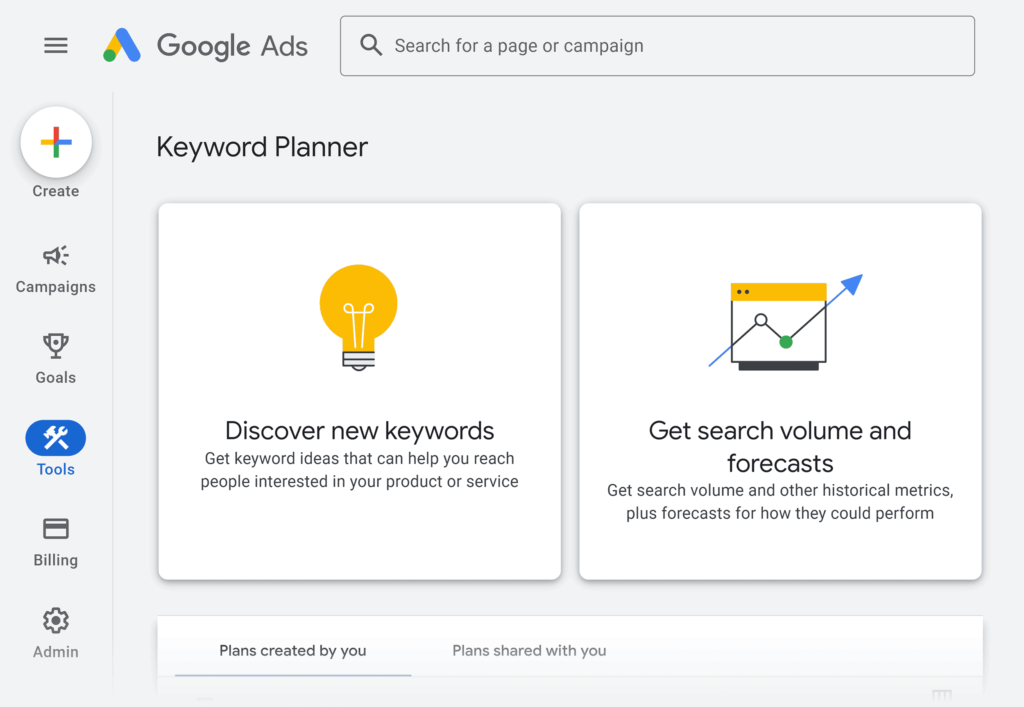
One of the most popular keyword search tools is Google Keyword Planner, which is part of the Google Ads platform. It allows advertisers to research keywords by showing estimated search volumes, historical data, and competition levels. This helps businesses to not only improve their ad targeting but also refine their SEO strategies.
Another tool is Ahrefs’ Keywords Explorer, which offers comprehensive data on keyword difficulty, traffic potential, and related keywords. This tool is often used for competitive analysis, showing which keywords competitors are ranking for and how difficult it may be to outrank them.
SEMrush and Ubersuggest are also widely used tools, offering similar features like keyword suggestions, trends, and competitive insights. SEMrush, in particular, is known for its broad database of keywords and its ability to show data across various search engines.
Google Trends
Pricing: free
Google Trends is another free tool by Google, used to compare keyword popularity and search volume over time. It’s a great way to get an overview of what people are interested in, and how their interest changes over time. It’s also a great way to determine what keywords to focus on.
One of the key features of Google Trends is the ability to track the relative popularity of a keyword.
The tool displays a graph showing search interest on a scale of 0 to 100, where 100 represents the peak popularity.
This makes it easy to identify trends, seasonal changes, or rising topics in specific markets. For example, e-commerce businesses can use Google Trends to monitor seasonal demand for products, allowing them to adjust their inventory.
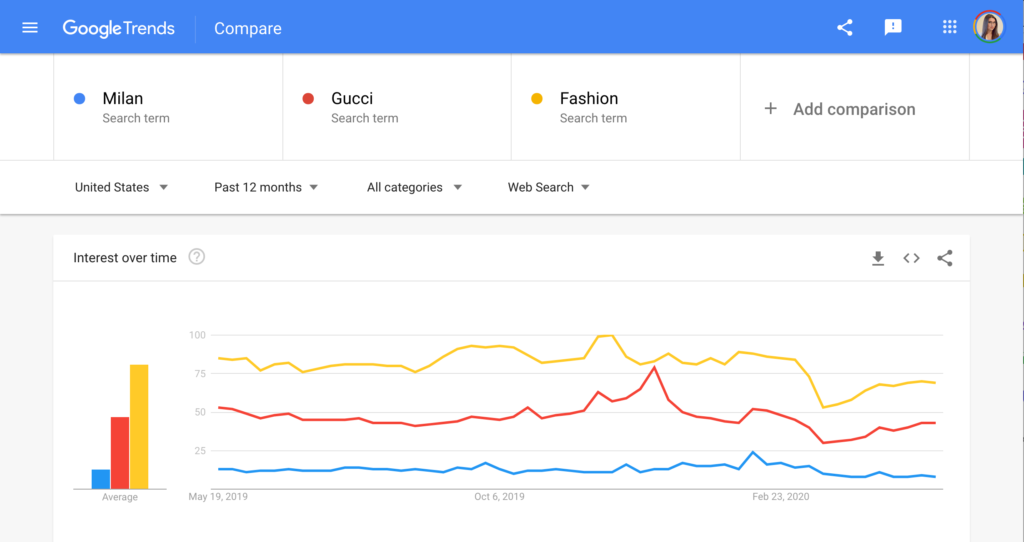
This can be particularly useful for search engine optimization (SEO) and pay-per-click (PPC) advertising campaigns, as it provides insight into which keywords.
For instance, a marketer might compare the search interest between two products or services to determine which one is more relevant in a given location or time frame.
The tool also offers regional interest data, allowing users to see where in the world specific search terms are most popular.
This feature is beneficial for businesses operating in different geographic markets, as it enables them to tailor their content.
Additionally, Google Trends provides related queries and topics, giving users a broader view of what is being searched alongside their chosen keywords.
Google Suggest
Pricing: free
Google Suggest (or Predictive Search) is not a tool per se, but a feature in Google. You can use it to find out what people are searching for, and how they phrase their searches. Although there’s no actual data associated with Google’s Suggest feature, it can give you a good idea of where to start on your keyword research.
This functionality is designed to help users complete their search queries more quickly by predicting.
Google Suggest can save time and enhance user experience by offering immediate, relevant search suggestions that often match or closely resemble the user’s intended query.
The core idea behind Google Suggest is rooted in efficiency and convenience. By providing a list of predictions, it helps users refine their queries without needing to type out the entire phrase.
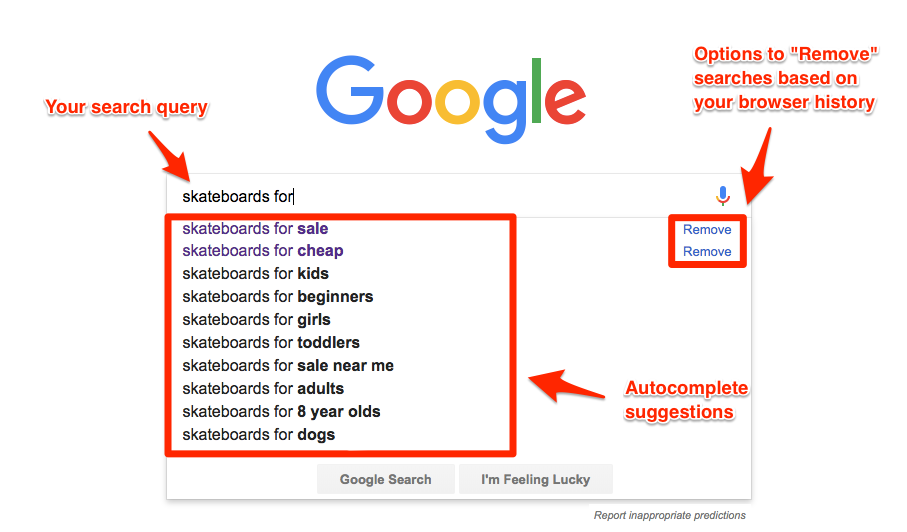
For instance, if a user starts typing “best places to visit in,” Google Suggest might autocomplete the phrase with popular destinations.
This feature not only improves search efficiency but also inspires, leading users to explore different search paths they might not have originally considered.
Google Suggest draws its predictive power from various data sources. One key factor is the popularity of search queries—phrases that have been searched frequently are more likely to appear in the suggestions. Google also considers real-time search trends, adapting the suggestions to current events or hot topics.
For example, someone in Malaysia might see different suggestions for “best restaurants” compared to a user in another country.
Answer the Public
Pricing: free + paid plans start at $79/mo
Answer the Public (now acquired by Neil Patel Digital) is a keyword research tool that looks at the questions people are asking about your industry and provides you with a list of relevant keywords. It’s a great way to see what questions people have, and how you can answer them.
Answer the Public allows you to run a limited number of free searches, with limited data, every month. It starts at $79/mo on the annual plan, and goes up to $99/mo if you want to do the monthly), and they also have an expert plan at $199/ month (which includes 20 search listening alerts).
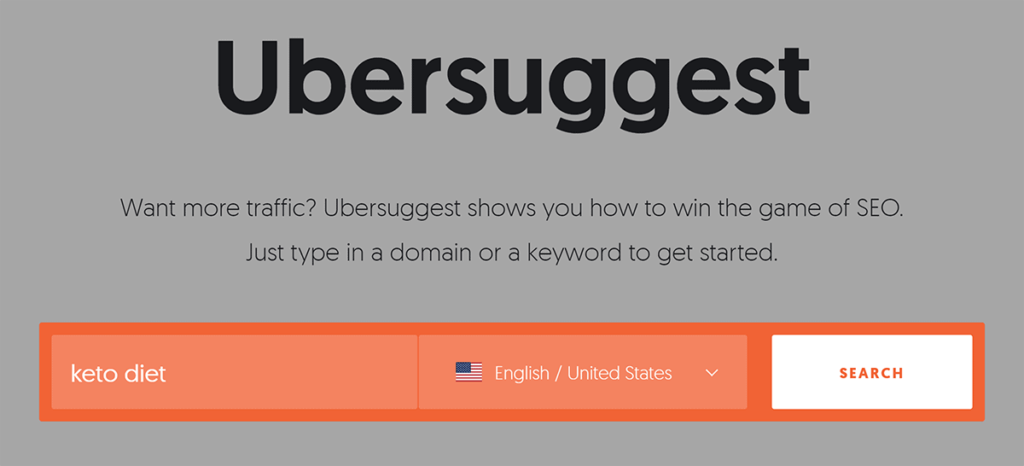
Once a user enters a keyword.
Ubersuggest provides detailed information such as search volume, keyword difficulty, and cost-per-click (CPC).
This data is invaluable for identifying keywords that have high search demand but low competition.
In addition to traditional keyword suggestions, Ubersuggest offers Keyword Ideas that include short-tail and long-tail keywords. Short-tail keywords are typically broader and more competitive, while long-tail keywords are more specific and often less competitive.
Semrush
Pricing: $119.95/mo
Semrush is one of the most comprehensive keyword research tools out there. It not only provides you with a list of relevant keywords but also shows you how competitive.
They just launched a bunch of new cool features and are quickly becoming an all-in-one kind of platform. You can use Semrush to create performance reports on your ad campaigns, you can also use it for content marketing, SEO, and market research.
Semrush gives you a free 7-day trial on any of their plans, and the pricing starts at $119.95/ month and can go as high as $499.95/ month.
It’s one of the best tools to use for Google Ads agencies and eCommerce Google ads agencies.

A standout feature of SEMrush is its Keyword Magic Tool, which offers extensive keyword suggestions based on a seed keyword. The tool categorizes keywords into different topics, making it easier for users to find related long-tail keywords and thematic groups.
Another valuable component of SEMrush’s keyword tool is Keyword Difficulty, which provides an estimate.
This helps marketers prioritize their efforts, focusing on keywords that offer the best balance between search volume and competition. Additionally, the Keyword Gap tool allows users to compare their keyword profiles with that of competitors.
SEMrush also offers Position Tracking, enabling users to monitor how their website ranks for specific keywords over time.
This is useful for tracking the effectiveness of SEO efforts and making adjustments to improve rankings. It provides daily updates and allows users to track rankings for multiple locations and devices

